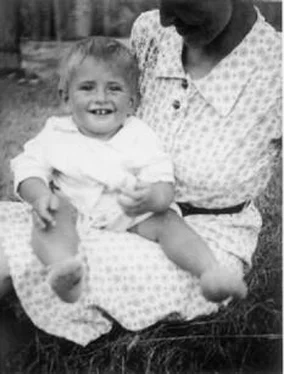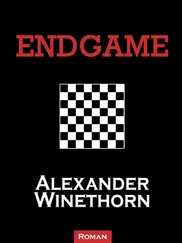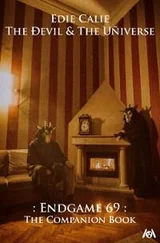For the past six months I have been forcibly and illegally imprisoned in Japan on the completely false and ludicrous grounds that I entered Japan on April 15, 2004 and that I “departed” or attempted to depart Japan on July 13, 2004 with an invalid passport. During this period my health has steadily deteriorated, I’ve been dizzy for about the past two months now.…
When the Narita Airport Immigration Security authorities brutally and violently “arrested” me … I was seriously injured and very nearly killed. Furthermore it is surely not beneficial to my health either physically or psychologically that they’ve dragged me here to Ushiku which is only about 66 kilometers from the leaking Tokaimura Nuclear Power Plant (Japan’s Chernobyl!!) in Tokai City. They just had another accident there on October 14, 2004! …
Neither the Japanese nor the American authorities have ever bothered to offer any explanation whatsoever for this outrageously criminal act [his arrest]. Apparently, they’re strictly heeding Disraeli’s advice which was to “Never apologize, never explain!”
Because of all of the foregoing I would therefore like to formally request that Althingi grant me Icelandic citizenship so that I may actually enjoy the offer of residence in Iceland that your Minister of Foreign Affairs, Mr. David Oddsson has so graciously extended to me.
Most Respectfully,
BOBBY FISCHER
During his incarceration in Japan, the only respites Bobby had from boredom and emotional turmoil were the visits from his lawyers and Miyoko, and his use of the telephone. He was allowed out of his cell to make collect calls, and the jailers seemed to put no time limit on them. He talked with Palsson, and later he had long, wide-ranging conversations with Gardar Sverrisson, the Icelandic political scientist on the RJF Committee. These calls to Gardar were important to Bobby because they went beyond the complicated aspects of his imprisonment and touched on other matters, such as politics, religion, and philosophy. Bobby asked Gardar in what religion, if any, he’d been raised, and when he was told it was Catholicism, Bobby pressed for more insight, wanting to know the nuances of that theology. The two men created a tele-pal relationship, forming a bond that would last for years.
Bobby also discussed Catholicism with a second person during this time. Richard Vattuone of San Diego, California, was another attorney who was helping out with the case. He visited Bobby in the jail and gave him a copy of The Apostle of Common Sense , a book about the writer G. K. Chesterton, which covered various matters of religion and culture. Bobby read some of the book and had conversations with Vattuone about religion. Chesterton was a convert to Catholicism.
When Miyoko came to visit, often she’d have to wait to see Bobby if he had another visitor—such as Suzuki or Bosnitch—since the detention center only allowed one visitor at a time, and visiting hours were limited. Fischer would have to pass through sixteen locked doors before reaching the visitors’ room, and could only talk through a plate-glass wall, as if he were not just in an immigration detention center but a maximum security prison.
Three members of the RJF Committee—Einarsson, Thorarinsson, and Sverrisson—traveled to Japan at their own expense to see if they could find a way to expedite Fischer’s release. No matter what logic they offered to the authorities, such as the fact that Iceland’s foreign minister David Oddsson had issued Bobby a foreigner’s passport—similar to what is called a green card in the United States—the rules-conscious, bureaucratic Japanese were not persuaded. They continued to maintain that Bobby would be deported back to the United States once the legal proceedings were concluded.
The RJF members were about to leave Japan, depressed that they’d made little headway, when a call came in from Suzuki that bore potentially good news. A member of the Japanese parliament was willing to meet with the committee to see whether there was a way he could help. He’d studied the issues and sided with Bobby.
The meeting was held in secret, and the parliamentarian, who spoke perfect English, having been educated at Oxford, asked for anonymity, which he believed would enable him to better work behind the scenes. After he heard all of the arguments as to why Bobby should be released, and judged that the RJF members were committed to their cause, he went into action. Somehow he ignited the interest of Miszuko Fukushima, chairman of the Japanese Social Democratic Party. The goal was to get Fukushima to petition for Bobby’s right to be deported to—and accepted by—Iceland. Fukushima criticized Chieko Nohno, Japan’s minister of justice, for the arrest and detention, and asked him to reconsider the case. Although it was not a watershed moment, the current was beginning to shift, and as Bobby saw the accumulation of small advantages—a concept in chess described by Wilhelm Steinitz—he became optimistic, although not exhilarated.
When the RJF Committee members returned to Iceland, they worked full-time arousing their parliament’s interest in the case, warning that if action weren’t taken quickly, it would be too late for Fischer to receive justice. He would be extradited to the United States and probably imprisoned for ten years. Many of them believed, as did Fischer, that he could be murdered while in prison.
The Icelandic Chess Federation took a calculated risk in attempting to add strength to the argument for releasing Bobby. They issued a strong critique condemning Bobby’s statements, while hoping that an appeal to the United States’ sense of humanitarianism might alleviate the tension in Japan:
The Icelandic Chess Federation is, of course, aware of the obscene anti-Semitic and anti-American remarks that Bobby Fischer has made over the last year on different occasions. The Federation is appalled by these remarks, as any civilized body would be, and sees them as signs of a deranged and devastated psyche. In 1992, in Yugoslavia, however, Bobby Fischer’s only crime was to play chess again, after years of isolation. The Icelandic Chess Federation urges the President of the United States to pardon Bobby Fischer and let him go free.
The letter was sent to President George W. Bush and received no reply.
Twelve years prior, months after the 1992 indictment had been issued, Bill Clinton had been elected President of the United States. David Oddsson, then the prime minister of Iceland, had visited the White House at the time and made a personal appeal to one of Clinton’s senior aides, asking that the president drop the charges against Fischer. Word came back that Clinton would prefer not to make a ruling on the matter, “an unusual decision,” according to Oddsson. “When the leader of a country makes a personal plea about a relatively small matter (in the scheme of things) to another leader, it is usually granted.”
Back at the time of the sanctions controversy, Spassky wasn’t indicted by the French, and Lothar Schmid wasn’t indicted by the Germans. Bobby Fischer was the only person in the world ever known to have faced charges under President Bush’s bill.
Trying to prevent Fischer’s escape to Iceland, various agencies in the United States accelerated their pursuit of Bobby, putting more pressure on Japan to extradite him. A federal grand jury in Washington began what turned out to be a smoke-screen investigation accusing Fischer of money laundering after his match with Spassky in 1992. Since there was no evidence of such laundering, it was Fischer’s lawyers’ belief that the government was attempting to propagandize Fischer’s sanctions case by further tarnishing his public image. Nothing came of the investigation and no additional indictment was handed down.
Читать дальше


![Антон Текшин - EndGame [СИ]](/books/394477/anton-tekshin-endgame-si-thumb.webp)









